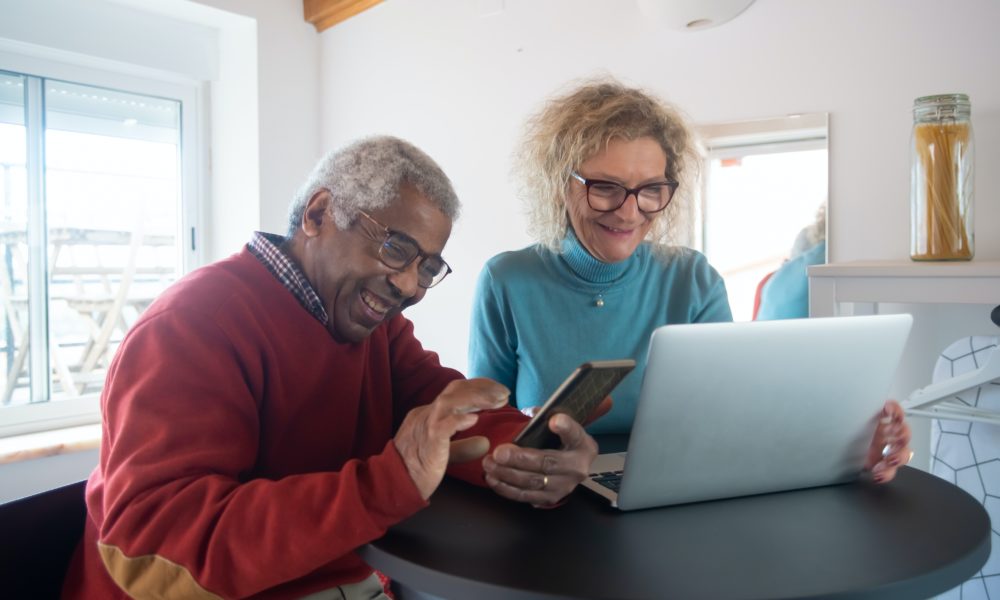Holiday seasons are often described as a time of warmth and happiness. It is a time for some people to meet their families and friends, and for some others, it is a time for a celebration. However, for some people, holidays can be a period of loneliness, depression, and sadness, especially during this pandemic era. Loneliness for some residents in long-term care can be a sad but typical feature of living in long-term care. Vulnerable populations such as older adults or people with mental health problems are more likely to get holiday blues. The National Alliance on Mental Illness (NAMI) reported that 64% of people with mental health issues find that the holiday seasons make their symptoms worse.
Causes
- Stress and Fatigue: Preparing for holidays can be challenging. Driving, meal prepping, socialization, or even meeting families and relatives can lead to stress and fatigue for some people.
- Unrealistic Expectation: People become more vulnerable to be exposed to over-commercialized content from social media. They are more likely to have a higher expectation, which can lead to depression and sadness.
- Isolation and Loneliness: Not being able to spend time with families can cause holiday blues, especially for those who are in long-term care facilities. Because of the pandemic, it has become harder to visit loved ones in long-term care communities. Thus, long-term care community residents get more isolated than before.
Coping Tips
There are some helpful strategies to get away with Post-holiday Blues and COVID Blues.
- Be realistic. Make realistic expectations and goals for yourself. Do not take on more responsibilities than you can handle. Manageable tasks and activities can make you out of disappointment and powerless feelings.
- Don’t set yourself up for sadness by comparing today with the ‘good old days’ of the past. Carpe Diem. Live and enjoy the present and look to the future with optimism.
- Spend more time with people around you. Make a face time call with your families and friends. Reach out to local Area Agencies on Aging or church to make new connections and networks outside of long-term care facilities.
- Try volunteering. Helping others also make your health improved. Volunteering brings fulfillment to your life and combats depression.
If you want to talk to mental health professionals, please contact SAMHSA’s National Helpline at 800-662-HELP (4357). It offers referrals to local treatment facilities, support groups, and community-based organizations for people with mental health problems.
What about Nursing Homes Residents?
As vaccines have been distributing in the United States, people anticipate being back to the normal life like before. However, our ‘normal’ is not nursing home residents’ normal. Being isolated and feeling lonely has been normal things to people in long-term care communities. Because of the vulnerability, nearly 40% of the deaths from COVID-19 had occurred in long-term care communities after the outbreak. Tammy Kim, the New York Times writer, emphasized the urging needs for systematic changes of nursing homes.
When the pandemic is finally history, we’ll need to deal with all of this: the staffing shortages, low pay and lack of accountability — the many ways we have failed residents, family members and staffers. The awful truth is that long-term care was designed to fail years before Covid-19.
VOYCE advocates long-term care residents and their family members. If you have more questions about visitation guidelines, please reach out to the ombudsman in your region to discuss further. If you are looking for long-term care resources, please contact the VOYCEconnect Coordinator at 314-919-2403.


You are killing people in LTC by not allowing them visits by all their family members regardless of age
…shame on you
I am so sorry that you feel this way, Kara. We do not make any decisions about visits in long-term care. We only inform families, loved ones, and residents what the current guidance says. We also would love to see visits resume, as we agree that it is essential for the mental and physical well-being of residents. In the meantime, we are here to provide resources for coping while visits are not allowed and to discuss what the current guidance says. If you have any more questions or concerns that you would like to discuss, please do not hesitate to reach out at 314-918-8222.